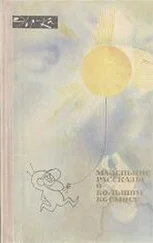While I was considering my own worldly sins and wondering whether there would be any use of my trying to prove an alibi by claiming that I lived in New Jersey [465], the bailiff angel came to the door and sang out:
‘Case No. 99,852,743.’
Up stepped a plain-clothes man – there were lots of ’em there, dressed exactly like preachers and hustling us spirits around just like cops do on earth – and by the arm he dragged – whom, do you think? Why, Liz!
The court officer took her inside and closed the door. I went up to Mr. Fly-Cop and inquired about the case.
‘A very sad one,’ says he, laying the points of his manicured fingers together. ‘An utterly incorrigible girl. I am Special Terrestrial Officer the Reverend Jones. The case was assigned to me. The girl murdered her fiancé and committed suicide. She had no defense. My report to the court relates the facts in detail, all of which are substantiated by reliable witnesses. The wages of sin is death. Praise the Lord.’
The court officer opened the door and stepped out.
‘Poor girl,’ said Special Terrestrial Officer the Reverend Jones, with a tear in his eye. ‘It was one of the saddest cases that I ever met with. Of course she was’ –
‘Discharged,’ said the court officer. ‘Come here, Jonesy. First thing you know you’ll be switched to the pot-pie squad. How would you like to be on the missionary force in the South Sea Islands [466]– hey? Now, you quit making these false arrests, or you’ll be transferred – see? The guilty party you’ve not to look for in this case is a red-haired, unshaven, untidy man, sitting by the window reading, in his stocking feet, while his children play in the streets. Get a move on you.’
Now, wasn’t that a silly dream?
The Fall of the House of Usher (Edgar Allan Poe)
Son cœur est un luth suspendu;
Sitôt qu’on le touche il résonne. [467]
De Béranger. [468]
During the whole of a dull, dark, and soundless day in the autumn of the year, when the clouds hung oppressively low in the heavens, I had been passing alone, on horseback, through a singularly dreary tract of country; and at length found myself, as the shades of the evening drew on, within view of the melancholy House of Usher. I know not how it was – but, with the first glimpse of the building, a sense of insufferable gloom pervaded my spirit. I say insufferable; for the feeling was unrelieved by any of that half-pleasurable, because poetic, sentiment, with which the mind usually receives even the sternest natural images of the desolate or terrible. I looked upon the scene before me – upon the mere house, and the simple landscape features of the domain – upon the bleak walls – upon the vacant eye-like windows – upon a few rank sedges – and upon a few white trunks of decayed trees – with an utter depression of soul which I can compare to no earthly sensation more properly than to the after-dream of the reveler upon opium – the bitter lapse into every-day life – the hideous dropping off of the veil. There was an iciness, a sinking, a sickening of the heart – an unredeemed dreariness of thought which no goading of the imagination could torture into aught of the sublime. What was it – I paused to think – what was it that so unnerved me in the contemplation of the House of Usher? It was a mystery all insoluble; nor could I grapple with the shadowy fancies that crowded upon me as I pondered. I was forced to fall back upon the unsatisfactory conclusion that while, beyond doubt, there are combinations of very simple natural objects which have the power of thus affecting us, still the analysis of this power lies among considerations beyond our depth. It was possible, I reflected, that a mere different arrangement of the particulars of the scene, of the details of the picture, would be sufficient to modify, or perhaps to annihilate its capacity for sorrowful impression; and, acting upon this idea, I reined my horse to the precipitous brink of a black and lurid tarn that lay in unruffled luster by the dwelling, and gazed down – but with a shudder even more thrilling than before – upon the remodeled and inverted images of the gray sedge, and the ghastly tree stems, and the vacant and eye-like windows.
Nevertheless, in this mansion of gloom I now proposed to myself a sojourn of some weeks. Its proprietor, Roderick Usher, had been one of my boon companions in boyhood; but many years had elapsed since our last meeting. A letter, however, had lately reached me in a distant part of the country – a letter from him – which, in its wildly importunate nature, had admitted of no other than a personal reply. The MS. gave evidence of nervous agitation. The writer spoke of acute bodily illness – of a mental disorder which oppressed him, and of an earnest desire to see me, as his best, and indeed his only personal friend, with a view of attempting, by the cheerfulness of my society, some alleviation of his malady. It was the manner in which all this, and much more, was said – it was the apparent heart that went with his request – which allowed me no room for hesitation; and I accordingly obeyed forthwith what I still considered a very singular summons.
Although, as boys, we had been even intimate associates, yet I really knew little of my friend. His reserve had been always excessive and habitual. I was aware, however, that his very ancient family had been noted, time out of mind, for a peculiar sensibility of temperament, displaying itself, through long ages, in many works of exalted art, and manifested, of late, in repeated deeds of munificent, yet unobtrusive charity, as well as in a passionate devotion to the intricacies, perhaps even more than to the orthodox and easily recognizable beauties, of musical science. I had learned, too, the very remarkable fact that the stem of the Usher race, all time-honored as it was, had put forth, at no period, any enduring branch; in other words, that the entire family lay in the direct line of descent, and had always, with very trifling and very temporary variation, so lain. It was this deficiency, I considered, while running over in thought the perfect keeping of the character of the premises with the accredited character of the people, and while speculating upon the possible influence which the one, in the long lapse of centuries, might have exercised upon the other – it was this deficiency, perhaps, of collateral issue, and the consequent undeviating transmission, from sire to son, of the patrimony with the name, which had, at length, so identified the two as to merge the original title of the estate in the quaint and equivocal appellation of the ‘House of Usher’ – an appellation which seemed to include, in the minds of the peasantry who used it, both the family and the family mansion.
I have said that the sole effect of my somewhat childish experiment of looking down within the tarn had been to deepen the first singular impression. There can be no doubt that the consciousness of the rapid increase of my superstition – for why should I not so term it? – served mainly to accelerate the increase itself. Such, I have long known, is the paradoxical law of all sentiments having terror as a basis. And it might have been for this reason only, that, when I again uplifted my eyes to the house itself, from its image in the pool, there grew in my mind a strange fancy – a fancy so ridiculous, indeed, that I but mention it to show the vivid force of the sensations which oppressed me. I had so worked upon my imagination as really to believe that about the whole mansion and domain there hung an atmosphere peculiar to themselves and their immediate vicinity – an atmosphere which had no affinity with the air of heaven, but which had reeked up from the decayed trees, and the gray wall, and the silent tarn – a pestilent and mystic vapor, dull, sluggish, faintly discernible, and leaden-hued.
Читать дальше
Конец ознакомительного отрывка
Купить книгу












